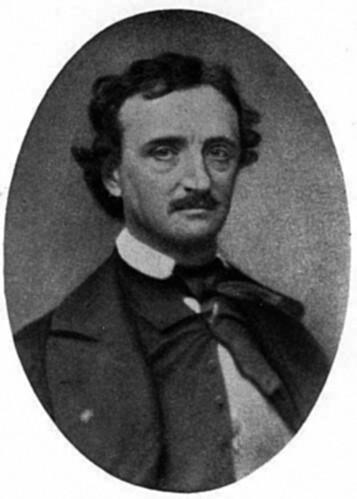How many times have you been asked to study "The Raven" in school? Have you ever heard of the Tell-Tale Heart? Even if you're not an avid reader of his works, chances are extremely high that you've heard the name Edgar Allan Poe at some point in your life. He's still being referenced in popular culture today, and he's credited with inventing the detective fiction drama that's served so many writers so well.
He died alone, broke and didn't receive much recognition for his work during his own lifetime. One may even infer that at the time of his death, by many perspectives Poe was something of a failure as a writer.
Starving Editor
His life, sadly, played out a little like something out of one of his own grim tales. After a brief military career, during which Poe asked to be discharged early, he moved to a city that has been a mecca for writers for centuries: New York.
Poe had published a book of poetry while in the army, but it didn't receive any real attention. His writing aspirations wouldn't get life again until he won a short story contest a few years later, after his poetry was rejected by many different magazines in the United States. The contest landed him a job as an editor. He did pretty well at the job, increasing the publication's circulation by a whopping 3,000 subscribers.
But the money wasn't good, and Poe was a writer -- not an editor. So he left the magazine and started writing short stories. Two more years passed before he got something published, a collection of short stories. He received 20 copies of the book...and not much else.
Poe accepted another editing position the next year, because a man's gotta eat, and after increasing the magazine's circulation he left the job after two years to start his own magazine. It failed. He published some booklets of his stories, but they didn't really sell all that many copies. Finally he accepted yet another editing position at yet another magazine, but it went bankrupt after a year and Poe was out of a job again.
He left New York in 1849. Edgar Allen Poe was found a few weeks later in Baltimore, semi-conscious, and taken to a hospital. This is where he died four days later, never explaining exactly what had happened to him. His death remains a mystery, though popular opinion blames his ongoing struggle with alcoholism. In his life, he was best-known as a literary critic, and he never much held a steady job for any length of time. He wrote prolifically, and tried on many occassions to get his work published and read. These attempts would, largely, fail.
Enduring Fame
Poe did gain attention for the poem "The Raven," which was first published in 1845. Following his death, more people became aware of Poe's works and today he's considered to be one of the greatest writers and poets of all time, a true pioneer in the mystery genre (to which I personally belong). Poe wrote with passion, and that's the way he lived...but as a writer, he had little to celebrate. He worked in the trenches, and he got as close as he could to the literary world he loved. In the end, his struggle did pay off -- albeit, a little too late for him to enjoy it himself. Somehow, I don't think Poe would really mind that too much -- he was a true lover of words, and I like to think he'd be happy just knowing that so many of us have read his.




























